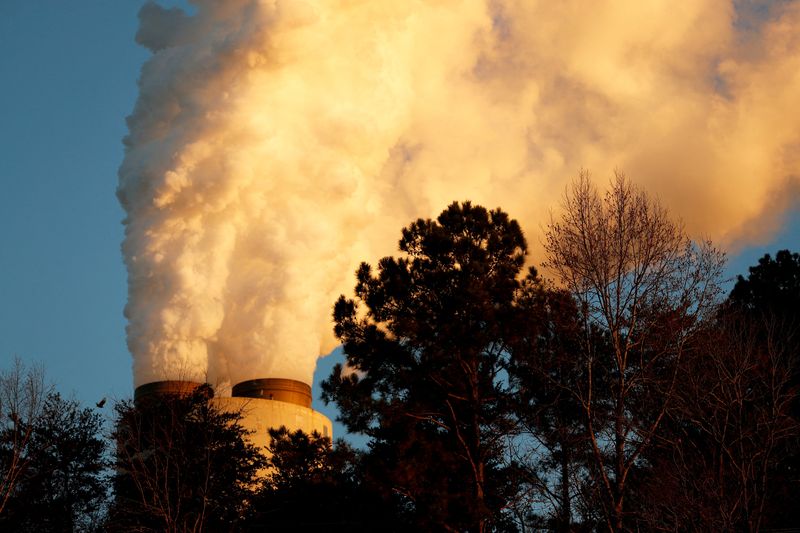By Brendan Pierson
(Reuters) – A U.S. appeals court ruled on Friday that a regulation imposing deep cuts on carbon emissions from power plants can proceed as it faces a challenge from more than 20 Republican-led states.
The Environmental Protection Agency’s rule applies to existing coal-fired power plants and any new plants.
The U.S. Court of Appeals for the D.C. Circuit in Washington, D.C. ruled that a delay was not necessary because the states did not experience any direct harm, as the rule’s earliest compliance deadline is 2030.
An EPA spokesperson said the agency was satisfied with the ruling. West Virginia Attorney General Patrick Morrisey, who is leading the challenge, said in a statement that the rule was unlawful and that he would ask the U.S. Supreme Court for a stay.
The rule, part of Democratic President Joe Biden’s broader climate agenda, requires greenhouse gas emissions to be reduced by 90% by 2032.
It has been challenged not only by states, including Indiana, Ohio and Kansas, but also by trade groups in the electric utilities, mining and coal industries.
To comply, the U.S. energy sector — which produces nearly a quarter of U.S. greenhouse gas pollution — would have to install expensive emissions control technologies or close the dirtiest coal-fired plants.

The EPA has said the reductions are achievable if the plants install carbon capture and sequestration technology that prevents emissions from reaching the atmosphere.
The challengers claim that the method has not yet been used meaningfully and is too expensive. They have also said the EPA exceeded its authority in creating the rule and needed explicit approval from Congress to do so.


